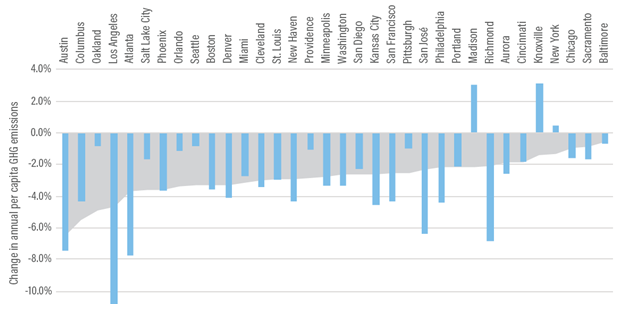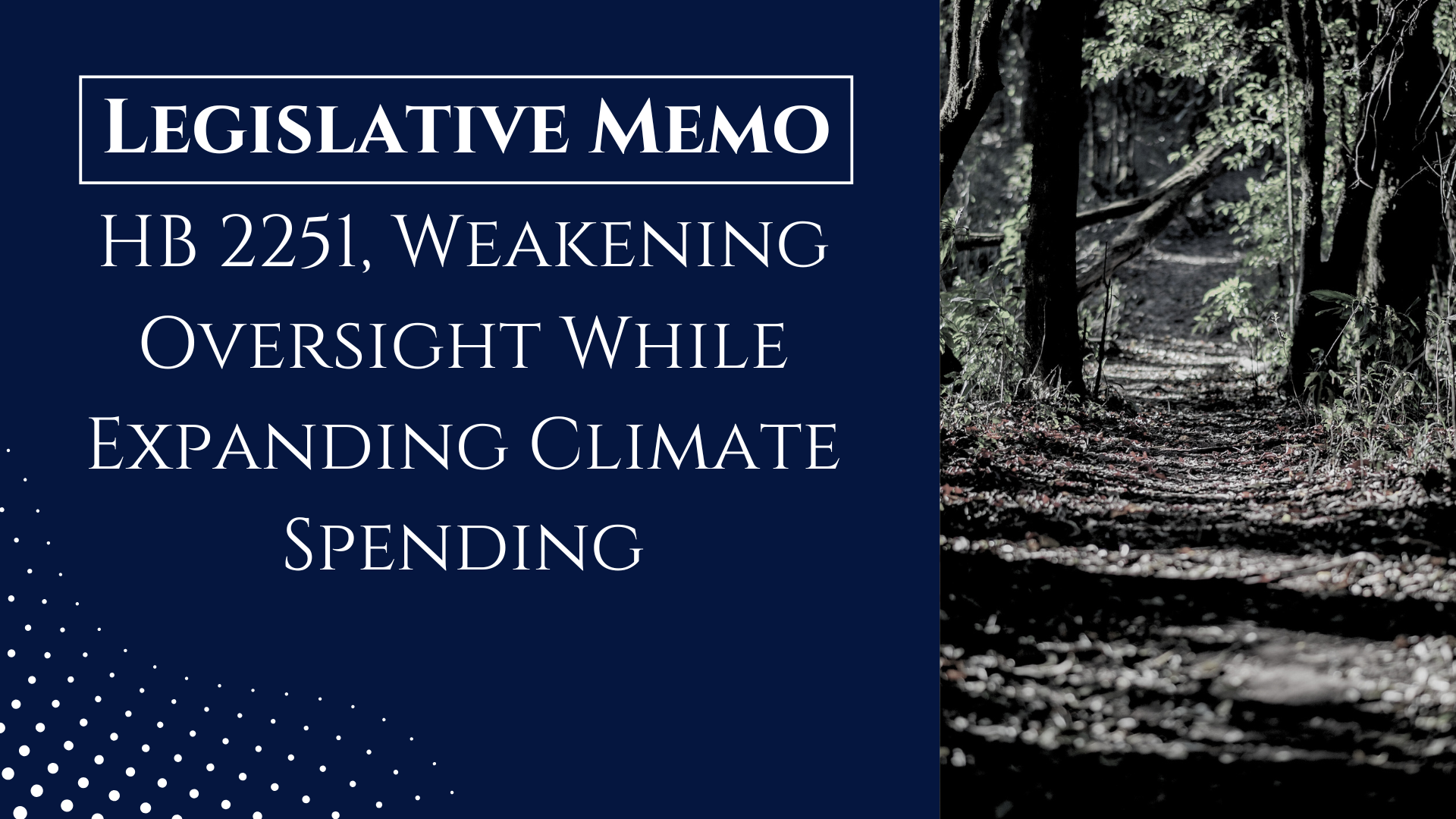According a the newly released “2020 City Clean Energy Scorecard,” Seattle is tied for second in the nation for “clean energy progress,” tied with Boston and behind only New York City. There is, however, a catch. Seattle ranked dead last – scoring zero points – for “progress toward climate goal” and other performance categories that measure real-world results.
Despite the talk, the report notes that Seattle is completely failing to do the only thing that actually matters: actually cut CO2 emissions.
The study from the American Council for an Energy-Efficient Economy, ranks cities based on range of policies related to local government, community-wide efforts, buildings, energy and water utilities, and transportation. There are 101 total points available. Strangely, however, there are only four points associated with actually reducing emissions in the real world.
For example, cities can get a point each for setting a “strict” energy reduction goal, renewable energy goal, and climate goal. But, they only get one point if they are meeting their climate target. Politicians can score many more points by setting unachievable goals than by reducing CO2 emissions.
That’s the route Seattle took to the second spot. There are four points associated with performance at reducing CO2 emissions:
- Local government progress toward climate goal
- Community-wide climate mitigation goal progress
- Progress achieved toward VMT/GHG goal
- Progress achieved toward mode shift target
Seattle scored zero in all four areas.
The report makes clear how poorly Seattle is doing at reducing CO2 emissions. The authors include this graphic showing the city is nowhere near meeting its target and that it has one of the lowest rates of per-capita CO2 reduction among the 34 cities the report assessed.

Demonstrating how detached the ranked policies are from environmental results, the only city with a better overall score – New York – actually saw its emissions increase, and yet it was ranked #1 nationwide.
There is one other category that could be considered “performance,” rating “Electric and natural gas efficiency savings.” This, however, is based on a projection, not an actual measurement. Even there, Seattle only scored 1.5 out of 4.5 possible points.
The ACEEE study is the perfect example of the wide divergence between environmental politics and environmental results that are emblematic of Seattle’s climate policy. Worse, not only is there no accountability for failure, city politicians are actually rewarded by ACEEE and other groups for having policies that sound bold but are ineffective. As long as accountability and effectiveness are detached from political rewards, Seattle will continue its long streak of failure to achieve meaningful CO2-reduction goals, wasting huge sums of taxpayer money in the process.






